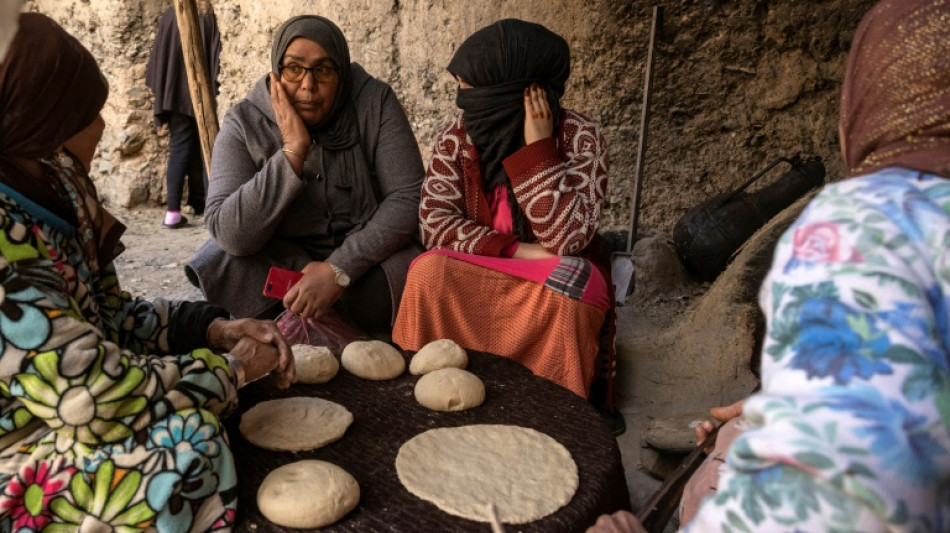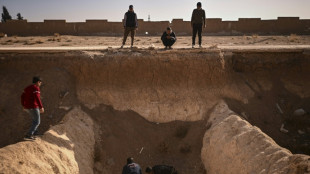

'Nightmare' of underage marriage for Moroccan girls
Nadia was just 16 when she was married off to a violent husband old enough to be her father -- an ordeal thousands of Moroccan girls face every year due to a legal loophole.
"I went through hell. But the nightmare is behind me now," she said.
Nadia, from a remote part of the North African kingdom's Anti-Atlas mountains, managed to win a divorce after a year of marriage.
Now aged 20 and living back with her parents in her village of Tamarwoute, she is learning to read and write.
"My dream is to be independent, and I'm encouraging other girls in the village to do the same," she said shyly, her face half-covered with a scarf.
Like the other women with similar stories quoted in this article, her name has been changed to protect her identity.
Morocco's 2004 family code puts the legal age of marriage at 18, but it includes a clause allowing judges to give families special dispensation to marry off children under that age.
Rights groups have long called for the loophole to be closed.
But according to official figures, judges approved some 13,000 waivers in 2020 alone -- more than half of the total applications.
That figure does not include minors wedded in customary marriages, not recognised in law but sealed with a simple reading of a verse from the Koran alongside two witnesses.
Najat Ikhich of the YTTO rights group says "this tragedy is widespread in remote, landlocked and marginalised areas".
For the last 10 years, the association she heads has been taking an annual convoy through Morocco's remote mountain communities, stopping to raise awareness of the dangers of underage marriage, organise debates and distribute aid.
Precarious livelihoods and long-held traditions make the group's mission particularly sensitive.
"It's delicate work because it's a taboo subject, so it's vital that we earn the trust of the people we're meeting and most of all, listen to them," Ikhich said.
- Battle for independence -
In the nearby village of Tamadghouste, among hills dotted with the region's famous argan trees, barely a soul was moving.
A few young women were gathered baking bread at the communal oven.
Ikhich approached and exchanged a few words with them in Amazigh, Morocco's Berber language.
The women's suspicious looks soon gave way to a flood of complaints over living standards in a village that has neither a school nor a pharmacy.
Amina, 23, said she was trying to "take control" of her life, after she was taken out of school at the age of six and married at 17.
"I've always wanted to study but nobody helped me. My three sisters had it even worse: they were married really young, at around 14 years old," she said.
In the Souss Massa region, more than 44 percent of women are illiterate, according to the most recent official figures from 2014.
Educating woman and making them more economically independent are key to tackling child marriage, said YTTO's southern Morocco coordinator Karima Errejraji.
She had never set foot in a school as a child, and was married at the age of 14 to a man of 56 -- four times her age.
"I got out by getting involved with associations," she said. "I decided to dedicate my life to helping the girls of this region."
At the communal oven in Tamadghouste, the women discuss making carpets or selling traditional bread to nearby hotels as ways of making a living and winning some autonomy.
They agreed on one thing: all girls have the right to an education.
Izza, a bright-eyed 23-year-old who was married six years ago, said she was fighting for her daughter to have an education.
"She must build herself, become independent and avoid ending up in my situation," she said.
O.M.Jacobs--JdB



